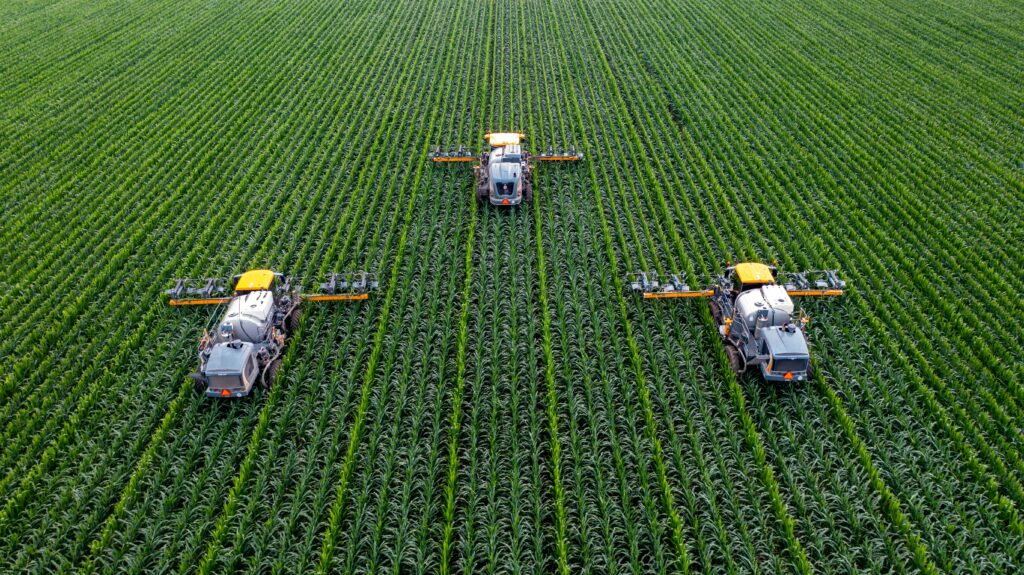Farming After Brexit – What the Changes Mean for Investors

- Category
- Sector News
- Sub Category
- Agriculture
The EU system of guaranteed payments to farmers is being replaced with a new regime that aims to encourage sustainability. Traditum’s Head of Agriculture, Stephen Pickup, explains the long-term implications.
The Common Agricultural Policy (CAP) was one of the most controversial aspects of EU membership. Designed to provide a level playing field for farmers and ensure food security, it was criticised for encouraging overproduction and intensive farming practices that had a devastating impact on wildlife.
Britain’s departure from the EU offers an opportunity to set our own policy and put agriculture on a more sustainable footing. But what does the new regime look like? And what will the changes mean for farmers and, over the longer term, for landowners and investors?
The transition began in 2021 and will take place over a seven-year period so the full set of measures has yet to be revealed. However the rules rolled out so far send a clear message to the industry: Farming is not just about food production – creating environmental benefits and combatting climate change are now an integral part of the job.
While the rules differ in each of the four UK countries, in England the old system of direct payments, where farmers were guaranteed an income, has been phased out altogether. Instead measures like the new Environmental Land Management (ELM) schemes and the Sustainable Farming Incentive (SFI) reward them for ‘public goods‘ such as improving biodiversity and water quality.
The SFI, for example, offers incentives on three levels starting with planning. Farmers can claim for using advisors to draw up plans for nutrient management, integrated pest management, moorland management and hedgerow assessment.
Other payments aim to enhance the use of marginal land, encouraging the creation of buffer strips of flowers and hedgerows between fields, tree planting to increase carbon capture, or moorland management measures such as slowing the flow of water to preserve peat and prevent erosion and flooding.
Finally, there is a more challenging level which involves changing the way crops are grown altogether, for example using advanced crop rotation, limiting fertiliser use and replacing insecticides with natural pest management measures.
The new regime certainly signals a change in approach. Instead of the old CAP system of assured payments, the new payments have conditions attached. Applications also require more effort, and the overall levels of payments will likely be lower unless there is a marked change in farming focus and actions.
Ultimately the new measures will benefit those who are actively carrying out modern, sustainable farming practices. Over the long term, they are not only likely to benefit from improved soil health, crop nutrition and increased yields, but also maximise payments.
In recent years agriculture has attracted a new generation of entrepreneurs with a fresh approach – trialling new crops, creating new food products and pursuing ‘greener’ practices – and it is innovators like these who are likely to thrive under the new regime. However, it will be challenging for traditional farmers who have spent years following conventional practices and may struggle to adapt.
Another impact of the new system is that farmers will look to add value to every parcel of land – why let it lie fallow when you could plant trees or wildflowers and get paid for it?
While the changes may affect farm incomes, by themselves they are unlikely to have a significant impact on land values. However as new technology offers the potential to improve yields, it could provide a way to optimise payments and offer scope for creative solutions that could transform the prospects of some estates.
It’s worth remembering too that the post-Brexit regime is just one of a number of trends that are changing the face of the industry – and in fact, it is simply intended as a tool to push farmers to make the right decisions on the land they operate and own. The growing demand for secure food supply chains, technological innovation and new ‘carbon related’ initiatives that use land as a way to achieve net zero, are amongst factors that will provide continued support for land values and offer new opportunities for investors in the years ahead.
Photo by James Baltz on Unsplash